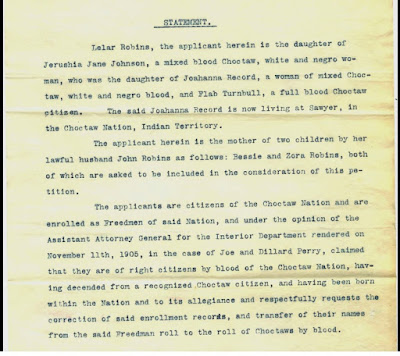The new organization, Choctaw Chickasaw Freedmen Association has made a splash on Social Media. The new group announced its presence first on Facebook and also with a detailed press release. The new website CCFANow.org came live at the same time and much needed energy has been injected into the community of descendants from both Oklahoma-based federally recognized tribes.
The Facebook page for Choctaw and Chickasaw Freedmen has over 1000 members, and many are now frequenting the new CCFA website for links to pages reflecting their history and their ancestral culture. In addition, a new Instagram page has been created with rich information not only about the new group, but also with useful links to contemporary issues pertaining to Freedmen.
The brainchild of Athena Gaiten Butler, originally of Kansas City Missouri, the group formed a small core group that worked together as a committee to establish, CCFA, the acronym for the group. One of the goals of this new organization is to reach out to Freedmen descendants of both Choctaw and Chickasaw Nations. Although descendants of Freedmen at present do not have citizenship in either nation, descendants of both nations have much in common. Beyond the shared history of their ancestors having once been enlsaved in Indian Territory, their vision extends far beyond a goal of a tribal card.
Some of the goals of CCFA are reflected in their social media presence. CCFA's Instagram account presents history as well as contemporary issues pertaining to both Freedmen communities. Likewise the group also has an accont on Twitter and has had significant Twitter re-tweets to their posts as well.
Many Freedman descendants are found on the CCFA Faceboook page, and over 1000 are found on the Descendants group page. Last week on Facebook, in honor of Indigenous Peoples Day, the Descendants group honored the day by honoring their ancestors, and posting images of them and identifying their relationship to their respective nations. Several dozen images were shaared and the reaction to the postings has been extremly positive!
On the Facebook Freedman Descendants page, portraits of ancestors were shared, along with the Roll number and Card number. Some who did not have portraits shared images of their ancestor;s Dawes Card. Some elaborated by telling a brief story about their ancestor. Much of this history of various families will be reflected on the website as well as on the pages of social media
Challenges Ahead
Chickasaw Freedmen descendants have a particularly interesting situation, because the despite the fact that the tribe broke the treaty of 1866, where they promised citizenship for their former slaves, many Freedmen descendants today will still tell others that they are Chickasaw. Likewise, descendants of Choctaw Freedmen also live on land allotments within the geographic jurisdiction of their nation and will tell others that they too, are Choctaw.
Thousands of descendants of both Freedmen groups live "at large" meaning outside of Oklahoma, having had family that migrated north and west. They left seeking more opportunities when the harshness of Oklahoma Jim Crow laws and the appearance of Sundown towns drove them away from the land that was for over a century, their home.
CCFA seeks to educate descendants to their rich history, to interact with those of both nations about the history and culture, and to empower descendants by offering workshops focusing on education, and opportunities for growth. CCFA also hopes to reach out to the community of enrolled Choctaw citizens through cordial meetups, and to encourage social interaction bewteen Freedmen and other fellow Choctaws.
Culturally, many Choctaw Freedmen considers themselves to be among the "Choctaw Proud" or Chickasaw people, and many are unaware that some of their leifestyle, including foodways come from their own their tribal background.
Much of who the freedmen are, will continue to be reflected both on the website and much more is planned to unfold on social media.


















































